When Can I Pee After Inserting a Progesterone Suppository?
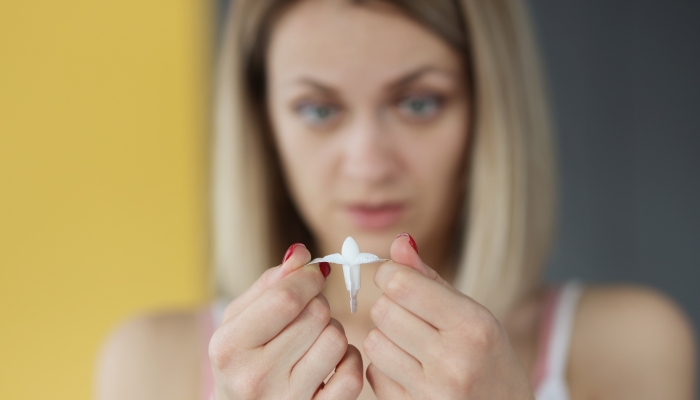
- Low progesterone levels may cause fertility problems and miscarriage.
- Many doctors recommend progesterone vaginal suppositories to improve the chances of healthy pregnancy.
- You shouldn’t pee or empty your bowels for at least 30 minutes after insertion of a progesterone suppository.
- Urinating or defecating too soon after the use of a vaginal suppository will decrease the amount of medicine you can absorb.
If you’ve had trouble getting pregnant, your doctor may recommend a variety of different medications and treatment options to help you conceive. Many women hoping to become pregnant need the help of a progesterone suppository that’s inserted into the vagina.
Not only can using these suppositories along with other fertility treatments feel uncomfortable, but it can also be a challenge to remember all of the methods, timing, and recommendations you’re supposed to follow throughout the process.
One common question asked by women using fertility-enhancing medications is, “When can I pee after inserting a progesterone suppository?” Here’s everything you need to know.
When Can I Pee After a Progesterone Suppository?
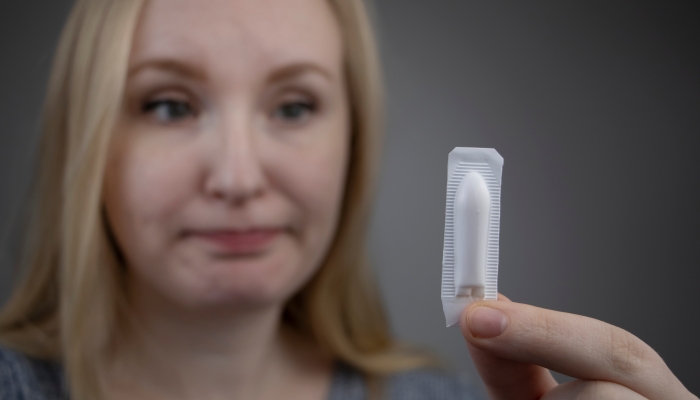
After inserting a progesterone suppository, you shouldn’t empty your bowels or bladder for at least 30 minutes. Most healthcare providers recommend that you lie down on your back for 20–30 minutes after inserting the vaginal suppository to give your body enough time for the progesterone medication to be fully absorbed.
Within 30 minutes, the suppository will dissolve and your body will absorb the medication. After half an hour, you don’t need to worry about medication leaking out of your vagina when you stand, urinate, or have a bowel movement.
How Do Progesterone Suppositories Work?
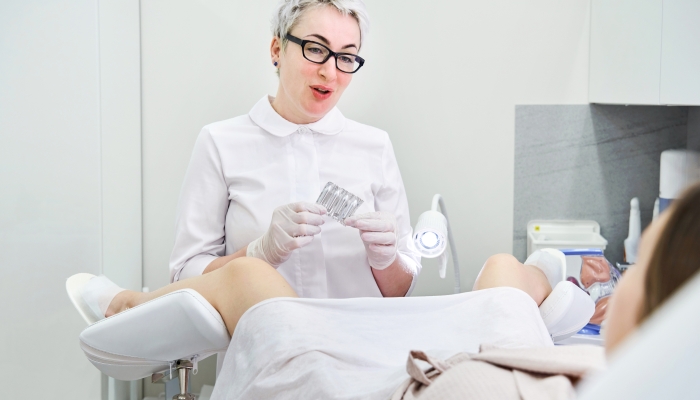
Progesterone suppositories are small circular medications that are inserted into the vagina. Most vaginal progesterone suppositories come with an applicator that functions much like a tampon applicator. Once the vaginal suppository is inserted, the outer coating of the medication dissolves, and progesterone is released. Progesterone is then absorbed through the vaginal wall and cervix.
One of the top tips for ensuring that your medication is fully absorbed is to take your suppository first thing in the morning, and then get back in bed and wait for twenty to thirty minutes. It’s normal to have some discharge when you stand back up.
The Importance of Progesterone
Progesterone is a steroid hormone in the body that’s produced by the corpus luteum during pregnancy as well as the gonads and adrenal cortex, according to a 2023 study11. Physiology, Progesterone. National Library of Medicine. 2023. https://www.ncbi.nlm.nih.gov/books/NBK558960 by Jessie Cable and Michael Grider, PhD.
Progesterone is particularly important during pregnancy, and having too little progesterone in the body is associated with miscarriage and infertility. During pregnancy, progesterone helps to thicken the endometrial wall, relax the muscles in the uterus, and decrease inflammation. Progesterone treatment can help women who have trouble with fertility or recurrent miscarriages.
In addition, progesterone can have a significant impact on your mood. Changing progesterone levels are a common cause of mood swings experienced by women throughout their menstrual cycle.
Complications of Low Progesterone
Progesterone medicines are used to treat many conditions caused by or that cause low progesterone levels.
Taking progesterone might be recommended for women who need assistance with:
- Treating infertility
- Preventing miscarriage
- Correcting irregular menstrual cycles
- Alleviating uncomfortable menopause symptoms
A study published in the British Journal of Obstetrics and Gynaecology22. Glazener, C. M., Bailey, I., & Hull, M. G.. Effectiveness of vaginal administration of progesterone. BJOG: An International Journal of Obstetrics and Gynaecology. 1985;92(4), 364–368. https://doi.org/10.1111/j.1471-0528.1985.tb01110.x states that progesterone suppositories may be a more effective option than oral or injected progesterone, especially for pregnant women.
What Are the Side Effects of Progesterone Suppositories?
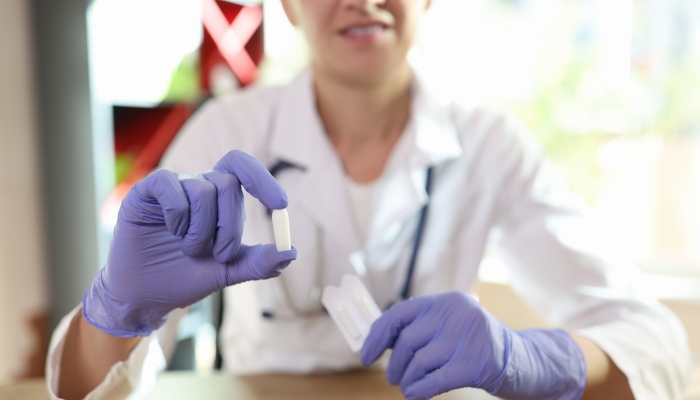
While progesterone suppositories are helpful for women with certain conditions and fertility problems, there are some side effects you should be aware of.
Experts at the Cleveland Clinic33. Progesterone Vaginal Insert. Cleveland Clinic. 2023. https://my.clevelandclinic.org/health/drugs/20862-progesterone-vaginal-insert state that there are a few dangerous side effects of progesterone. If you notice face or throat swelling, chest pain, numbness, or tingling in your arms or legs, go to the nearest emergency department right away.
Side effects of taking progesterone include:
- Allergic reactions
- Bleeding gums
- Forming a blood clot, including stroke and heart attack
- Breast tissue changes
- Headaches or migraines
- Depression and mood changes
- Liver injury or failure
- High blood pressure
- Vision changes
- Nausea
- Weight changes
- Drowsiness
- Bloating
- Yeast infections
Progesterone and other hormone replacement therapies are effective for the treatment of many conditions, but the side effects can be dangerous and uncomfortable. Make sure you discuss the risks and benefits with your healthcare provider before starting any new medications.
What to Remember When Using Progesterone Suppositories
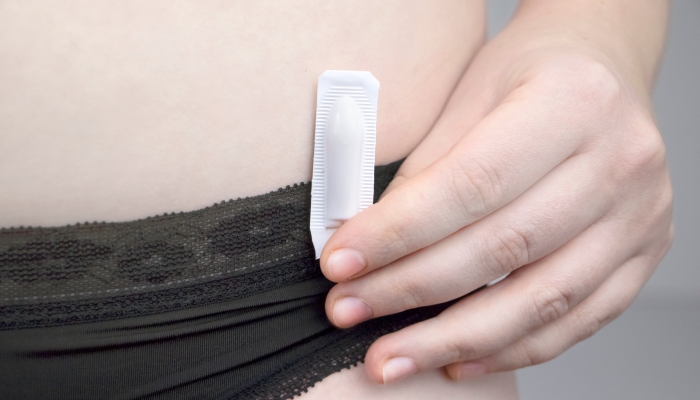
When taking a new medication, it can be difficult to remember all of the precautions you need to take to protect yourself from side effects. Writing down specific instructions can help protect you from making a mistake in the administration, amount, or timing of your medications.
Missed Dose
If you miss a dose, take a dose of your medication as soon as possible. However, do not double up on progesterone suppositories if you are nearing the time of your next dose. If you missed your scheduled suppository by more than a few hours, simply skip that dose and resume your regular schedule.
Insertion
Make sure to wash your hands before and after you insert the suppository. Use the applicator to push the medication as high into the vagina as you can. Insertion of the suppository should not be painful.
Try to lay flat for at least 20 minutes after you insert the medication. Do not pee or empty your bowels for 30 minutes after placing the suppository. Many women do experience the urge to pee right after inserting a suppository. If this is the case for you, try to hold your urine for as long as you can.
Timing
Your doctor should give you specific instructions about when to take your medicine. If you’re using a daily suppository, try to take it at the same time each day. Some women find they experience fewer side effects when they take their hormone treatment right before bed.
In addition to the time of day, your doctor may give you specific advice about what time of the month to use hormone treatments like progesterone. You may need to keep close track of your menstrual cyle and pay attention to signs that ovulation is over.
Again, you should consult your doctor about timing for medication effectiveness, especially if you are undergoing IVF.
Alternatives to Progesterone Suppositories
Some women prefer not to use progesterone suppositories. If you’re concerned about taking your medication vaginally, you can discuss other options with your doctor. These include:
- Oral pills
- Injections
- Vaginal cream or gel
While vaginal suppositories and creams may be uncomfortable, they’re usually more effective than alternatives. Pills taken by mouth are not absorbed as well as injections and vaginally administered medication. In addition, injections and oral medications are more likely to have systemic side effects.
FAQs
Can you have sex with progesterone suppositories?
You can have sex while using progesterone suppositories, just do not have sex immediately after inserting the medicine. If you’re using vaginal progesterone or other medications to get pregnant or maintain pregnancy, consult with your doctor about timing medications with sex.
Can I douche after using a progesterone suppository?
Healthcare providers recommend avoiding douching in general, including after taking progesterone suppositories. If you notice that you are having more discharge than usual, watery discharge, or suffer from yeast infections, make sure that you’re changing your underwear frequently and wearing loose-fitting clothing, and talk you your doctor about getting a prescription medication.
Do insurance plans cover progesterone suppositories?
Progesterone treatments and other fertility medications are sometimes covered by insurance plans. Some large companies offer fertility treatment coverage to their employees, but most states don’t require private insurance companies or Medicare to cover the cost of these treatments.
What should I do if I experience an allergic reaction to progesterone suppositories?
Seek medical treatment right away if you experience swelling, a rash, or dizziness after taking your suppository. Keep in mind that allergic reactions do not always happen after the first dose. Even if you didn’t have a reaction the first time you used progesterone, you can still have a reaction later.
Healthcare providers can use Benadryl and EpiPens to treat serious allergic reactions. If you experience an allergic reaction, consult your doctor to create a new treatment plan for yourself.
References
- Physiology, Progesterone. National Library of Medicine. (2023, May 1). https://www.ncbi.nlm.nih.gov/books/NBK558960
- Glazener, C. M., Bailey, I., & Hull, M. G. (1985). Effectiveness of vaginal administration of progesterone. BJOG: An International Journal of Obstetrics and Gynaecology, 92(4), 364–368. https://doi.org/10.1111/j.1471-0528.1985.tb01110.x
- Progesterone Vaginal Insert. Cleveland Clinic. (2023). https://my.clevelandclinic.org/health/drugs/20862-progesterone-vaginal-insert

The information WonderBaby provides is not intended to be, and does not constitute, medical or other health advice or diagnosis and should not be used as such. Always consult with a qualified medical professional about your specific circumstances.
Related Posts

Pregnancy
How To Deal With an Ingrown Hair on a C-Section Scar
Ingrown hairs on a C-section scar can be treated using a warm compress or mild exfoliation. Infected ingrown hairs may require antibiotic treatment.

Pregnancy
What’s a Dye Stealer Pregnancy Test?
A dye stealer pregnancy test usually means that your hCG levels are very high, which is typically considered a good sign for pregnancy.

Pregnancy
Can Yelling Cause a Miscarriage?
Yelling alone can not cause a miscarriage. However, maternal stress can cause high blood pressure, preterm labor, and other health problems.